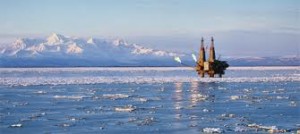OurEnergyPolicy.org has partnered with the Bipartisan Policy Center for Navigating the Oil Frontier: The Implications of the Tight Oil Boom on Arctic and Ultra-Deepwater Oil Development, to be held Monday April 21st at the Washington Court Hotel. This discussion is a digital extension of that event.
 With the onset of the U.S. tight oil boom, the growth of Canadian oil sands production, and the prospects for expanded Mexican oil production, expectations about future oil supply have shifted from traditional OPEC oil producers to countries whose oil production had previously been declining. The reduction of Arctic ice and development of deep-water exploration technology are also creating new frontiers for oil exploration. These new frontiers, in conjunction with othernew sources of energy, could provide a boon for global energy security and supply diversity.
With the onset of the U.S. tight oil boom, the growth of Canadian oil sands production, and the prospects for expanded Mexican oil production, expectations about future oil supply have shifted from traditional OPEC oil producers to countries whose oil production had previously been declining. The reduction of Arctic ice and development of deep-water exploration technology are also creating new frontiers for oil exploration. These new frontiers, in conjunction with othernew sources of energy, could provide a boon for global energy security and supply diversity.
However, the rapid increase in the production of unconventional oil has raised questions about the feasibility of oil production from other sources, particularly from high-cost sources such as those in the Arctic or in ultra-deepwater areas. Some observers question whether that oil is needed given the unconventional boom, while others question the safety of exploring these new frontiers. Furthermore, there are significant economic, geopolitical, environmental, and technical hurdles to their development.
How will competition from unconventional oil influence the prospects for Arctic and ultra-deepwater oil production? What are the geopolitical ramifications of Arctic and ultra-deepwater oil development?
Unfortunately I couldn’t make the BPC event, but I wonder if one of the main conclusions was that it is helpful to make a distinction between a. deepwater or (ultradeepwater)… Read more »